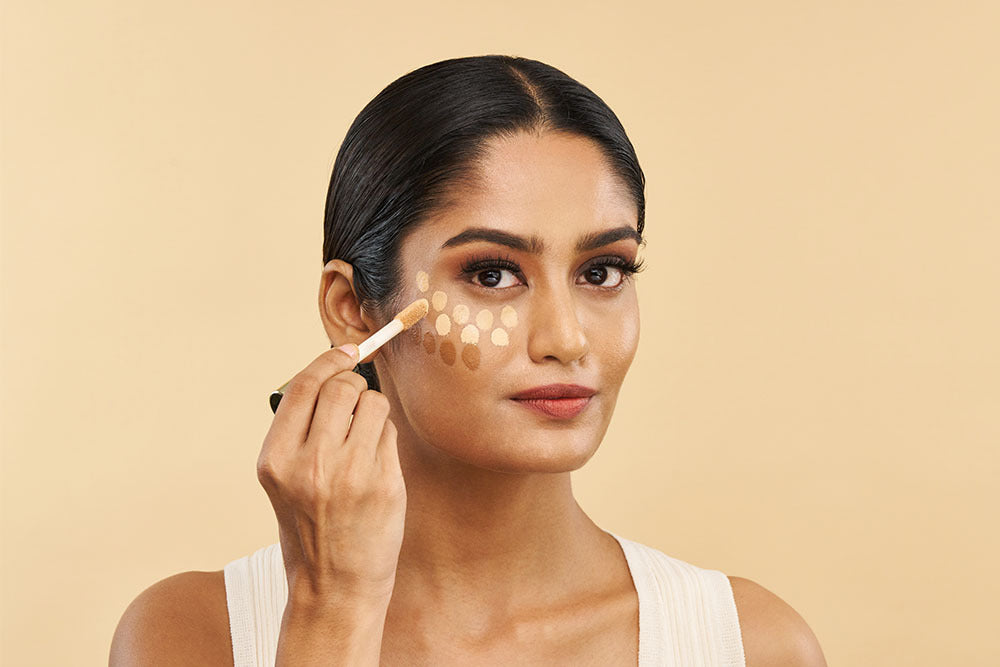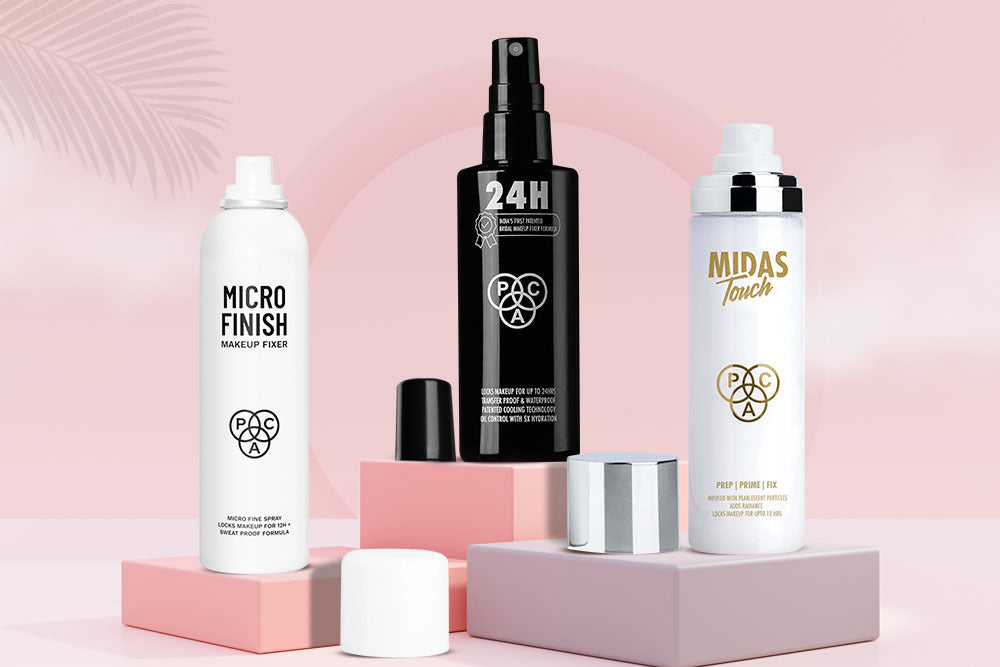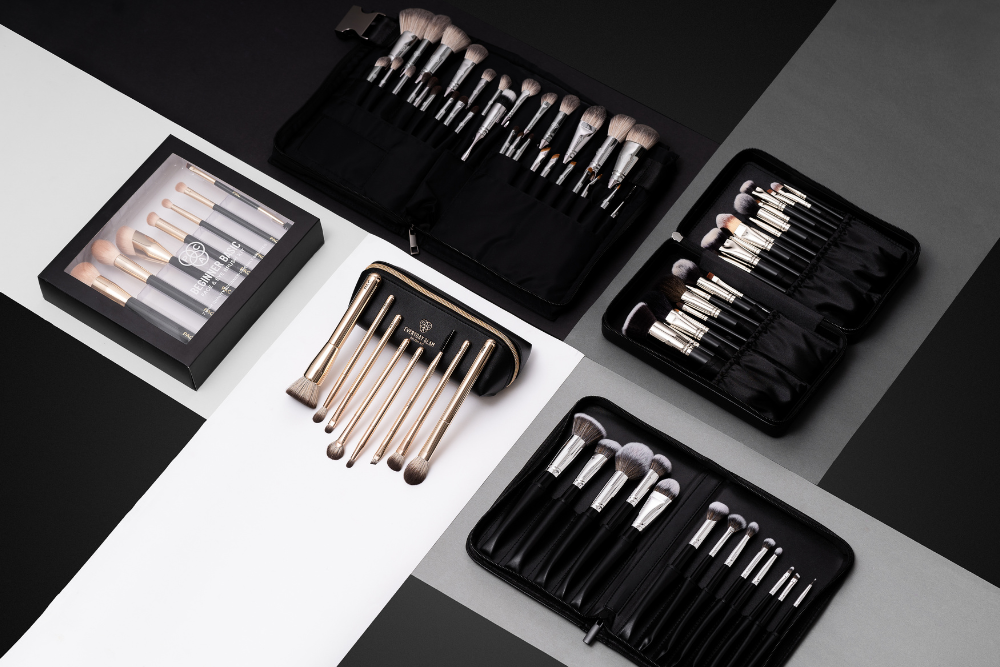Contouring and concealing techniques are important for any flawless makeup look. Using products like contours and concealers has become a must for the routine. But many people need clarification about which is which or even if they are important. Thus, we compiled a guide to help you understand contours and concealers, how they differ from each other, and why they are important.
What is Contour?
Contour is a makeup product for defining your face and properly enhancing its features. It entails using a contour to enhance by creating shadows and highlights to your face. It is applied to the sides of the nose, hollows of the cheeks, and jawline as it creates an illusion of depth and slimmer features. Contouring helps shape the face and emphasize structure, giving the impression of higher cheekbones or a more defined nose. Contours come in various formulations such as liquids, powders, creams, and sticks, and some even in various-shaded palettes such as the PAC Spotlight Contour Palette.
What Is a Concealer?
Concealers, as obvious from their namesake, are makeup products that conceal imperfections from the face and provide seamless coverage from dark circles, blemishes, redness, dark spots, and hyperpigmentation. Concealers apply a layer over these areas, helping to even out the skin tone. They come in a wide range of shades that would help you get the right shade suitable for your skin. These shades would help brighten under the eyes, correct discoloration, or add a little highlighting effect to specific areas of your face. Similar to contours, concealers come in liquids, creams, powders, and sticks. Color-correcting concealers, like the PAC Spotlight Concealer Palette, come in shades of green, orange, or yellow, to even out the skin tone on your face.
What Are The Differences Between Contour and Concealer?
People often get confused between the use of contours and concealers. One also wonders if you can skip either of them. The fact is: you have to apply BOTH of them but not all over the face. Instead, opt for certain areas that require highlighting such as the bridge of your nose or your cheekbones.
Differences Between Contours and Concealers:
Purpose:
Both contour and concealer serve different purposes in makeup application. Contours are designed to shape and sculpt your facial features by creating shadows that enhance the natural structure of your face. On the contrary, concealers focus more on covering imperfections, evening out skin tone, and correcting any discoloration on the face.
Placement:
Since the purposes of contours and concealers differ, the places where they are applied also vary. Contour is placed in specific areas such as along the jawline, hollows of your cheeks, sides of the nose, and near the hairline to create the illusion of depth. Concealers, on the other hand, are applied directly to the areas that need coverage, like under the eyes, around the nose, or any other places where there are any dark spots or blemishes.
Shades:
As contours are used to mimic shadows, they usually come in shades that are 2-3 shades darker than your original skin tone, providing you with a sculpted look. Concealer shades usually match your skin tone or are slightly lighter shades, especially for under-eye coverage.
Texture:
Contours and concealers possess a variety of textures, depending on the preferred use and formulation chosen such as creams, powders, or sticks, and often give a matte finish to mimic the natural appearance of shadows.
Concealers have a lighter texture for easy blend-ability that is ideal for under-eye concealing and a thicker texture for better coverage of stubborn blemishes.
Application Tools:
Different tools are recommended for applying contours and concealer to achieve perfect results. Contour is best applied with angular brushes, blending sponges, or contour-specific brushes like PAC Concealer Brush 288, as they give you precise application. Concealers can be applied by your fingers, however for better results, use a concealer brush or small, cute beauty blenders to ensure smooth, crease-free blending.
Finishes:
Contour products generally give a matte finish, as they are supposed to replicate the natural lines and definition of the face. Concealers lean on to a more skin-like finish as it is supposed to conceal and blend effortlessly. Depending on the formula used, they vary from mattes like the PAC Take Cover Concealer to dewy finished ones, giving your face a polished look.
What Are The Overall Pros And Cons When Comparing Contour and Concealer?
Pros of Contours:
- Sculpting-
One of the most prominent advantages of contours is their ability to sculpt and define the face with precise definition. By adding dimension to areas like the hollows of the cheeks or sides of the nose, contouring gives the face a more chiseled appearance.
- Adjustable Intensity-
The flexible nature of contours’ intensity is another plus for makeup application. One can adjust the intensity according to their preference or occasion. For example, for daily use, you can use contour to subtly define your face or opt for a more bold and precise contour for special occasions.
Cons of Contours:
- Precision Required-
Contouring is a makeup technique that requires the utmost precision. As you are defining and shaping your face, any mistake such as harsh lines or incorrect shade of contour may end up spoiling your look completely.
- Time Consuming-
Contouring is a precision-based technique and hence, could be very time-consuming or complicated for some people.
Pros of Concealers:
- Evens out Skin Tone:
Concealers cover the blemishes and marks on your face, giving you a more uniform skin tone with a subtle and natural finish.
- Brightening Effect:
It is always advised to get a concealer that is one or two shades lighter than your original skin tone as they can also serve as skin-brighteners for dark circles, and tired eyes, making your face look fresh.
- Convenient Use:
As concealers focus more on coverage, precision becomes moot as it can be applied anyway in the required areas, being relatively easier than contouring. A perfect quick fix to your face, concealers are ideal for hassle-free daily use.
What Are The Advantages Of Contour Over Concealer?
Contours are special because of their ability to define the face while adding more depth and shadows to your face. Unlike concealer, which focuses more on concealing, contours focus more on transforming your face and highlighting its best features.
Contour helps to create a more sculpted look by bringing out your facial features such as jawline, cheekbones, or nose. This added depth makes your face look more symmetrical.
Contours when applied as paired with powder tend to last longer than a concealer when set properly. While concealers are important, their effect is very subtle as compared to contours which are sharp with way more potent effects.
What Are The Advantages Of Concealer When Compared To Contour?
Contours are great in their places but concealers are equally as important to hide dark spots, blemishes, and redness. Hence, concealers become the perfect best friend for hiding imperfections and brightening certain areas of the face.
Concealers are undefeated champions when it comes to camouflaging skin concerns like acne, pigmentation, or pimples. While contours are adept at reshaping the face, concealers work to hide your imperfections (though we think you are beautiful as is) and give you a flawless complexion.
One of the key perks of using a concealer is that it can be used as a brightening agent too, especially for your under-eyes They dramatically improve the overall freshness of the face while boosting the radiance of your face and giving it a more youthful appearance.
Conclusion
Thus, it can be concluded that both contours and concealers are important with their added benefits in their own selves. Contours for depth and definition and concealers for hiding imperfections while brightening the face. Both of them are versatile products that can work together perfectly to create a flawless, sculpted look.



